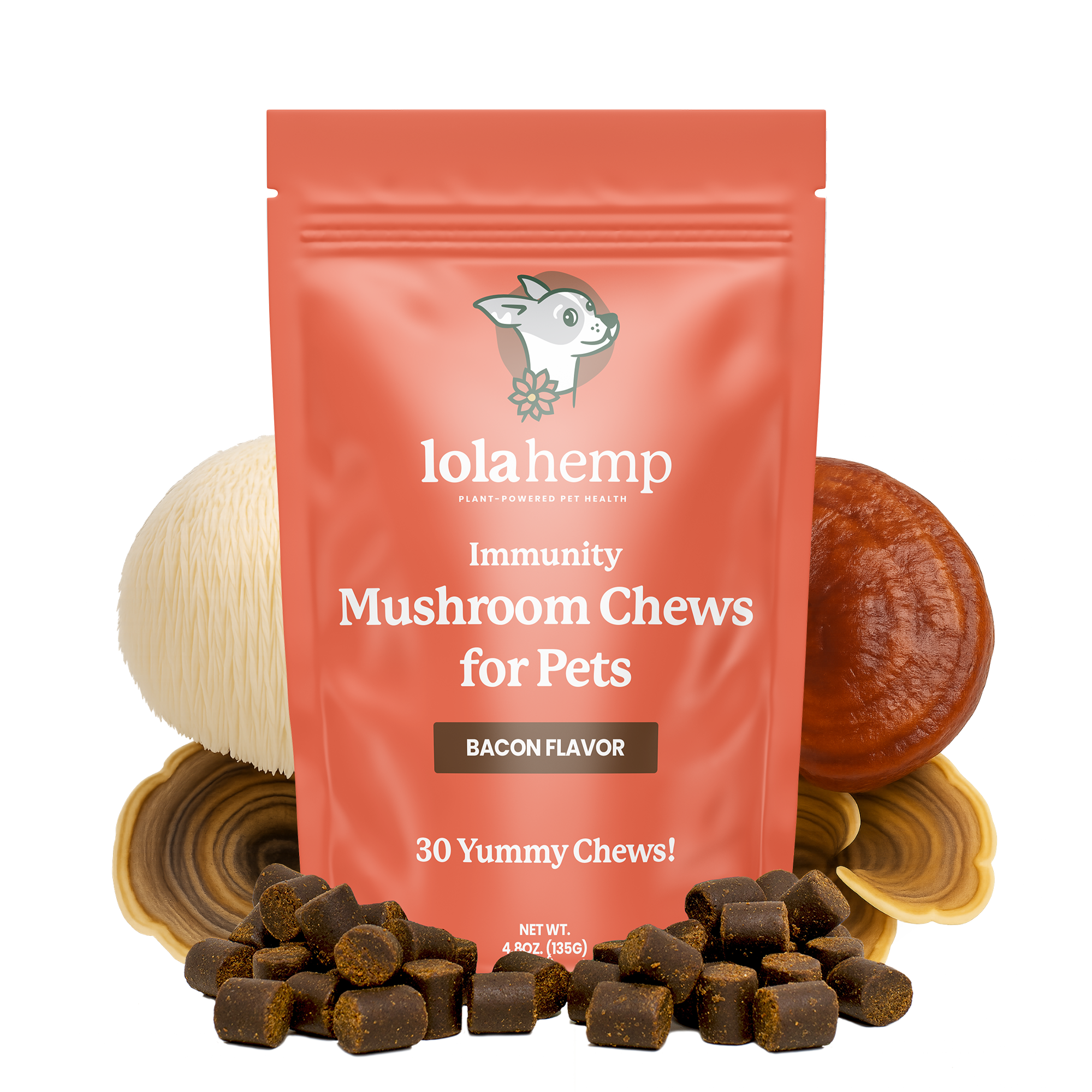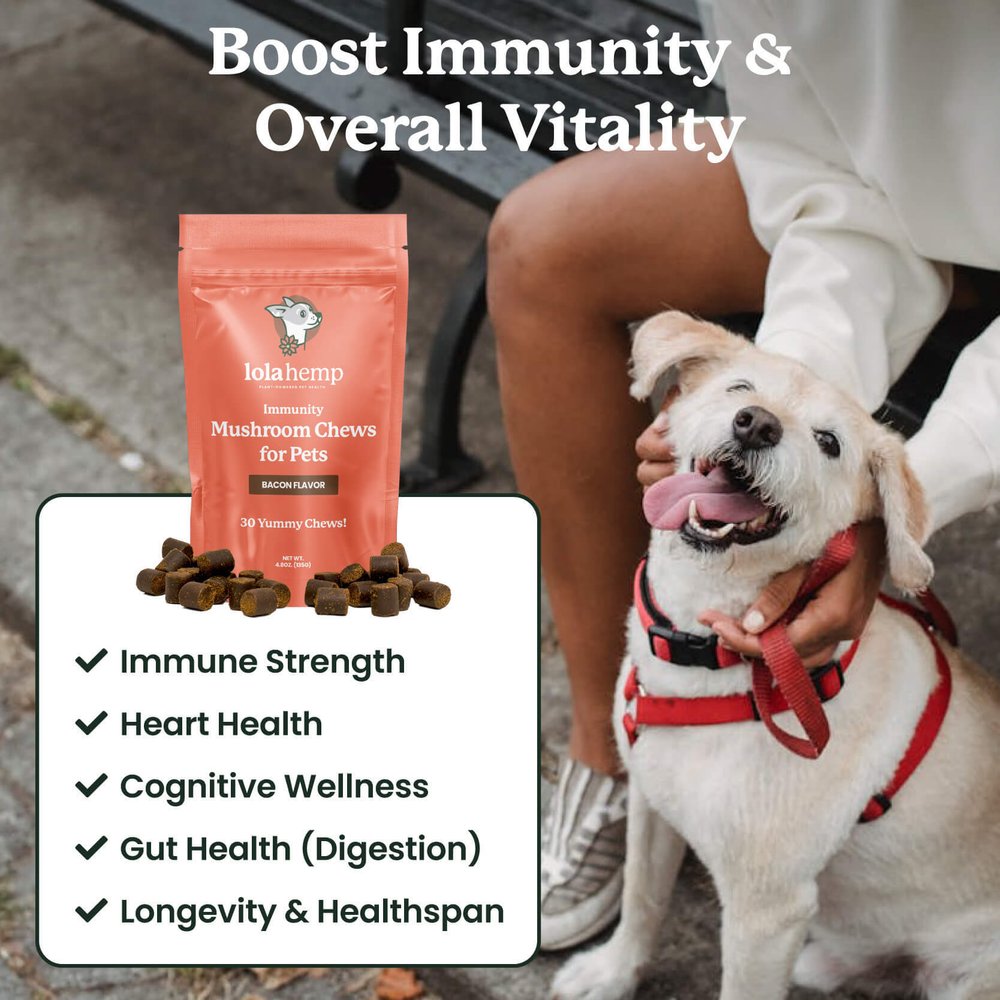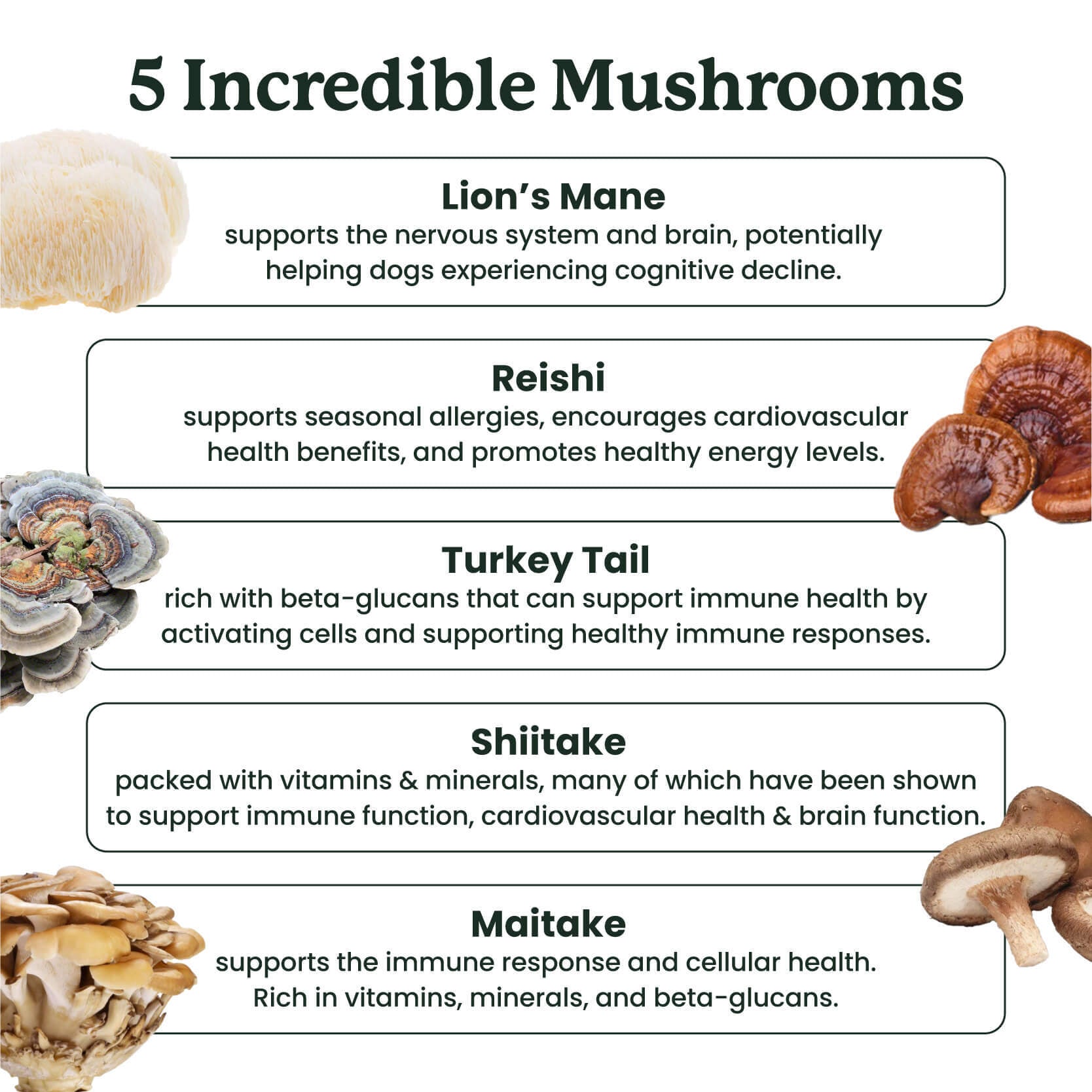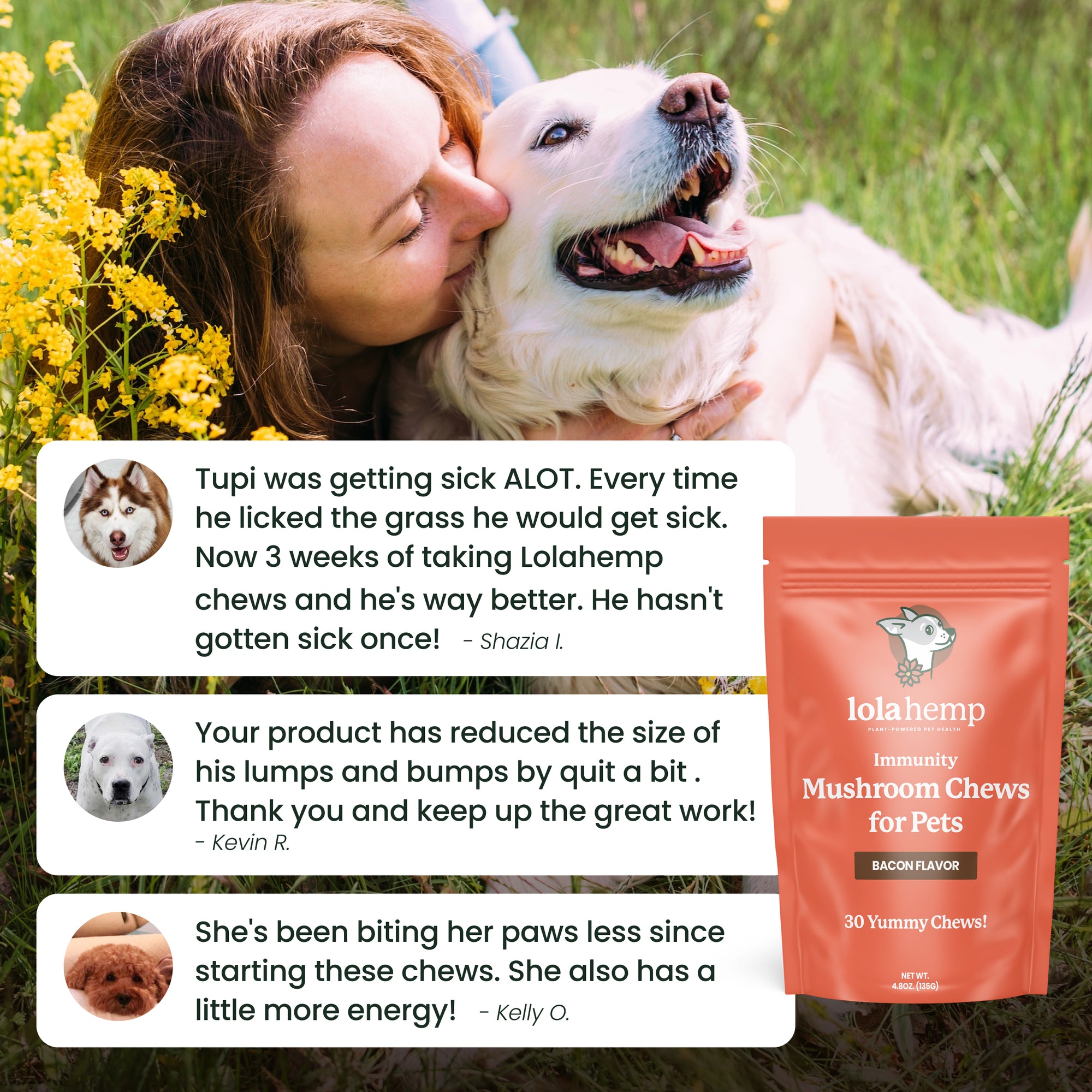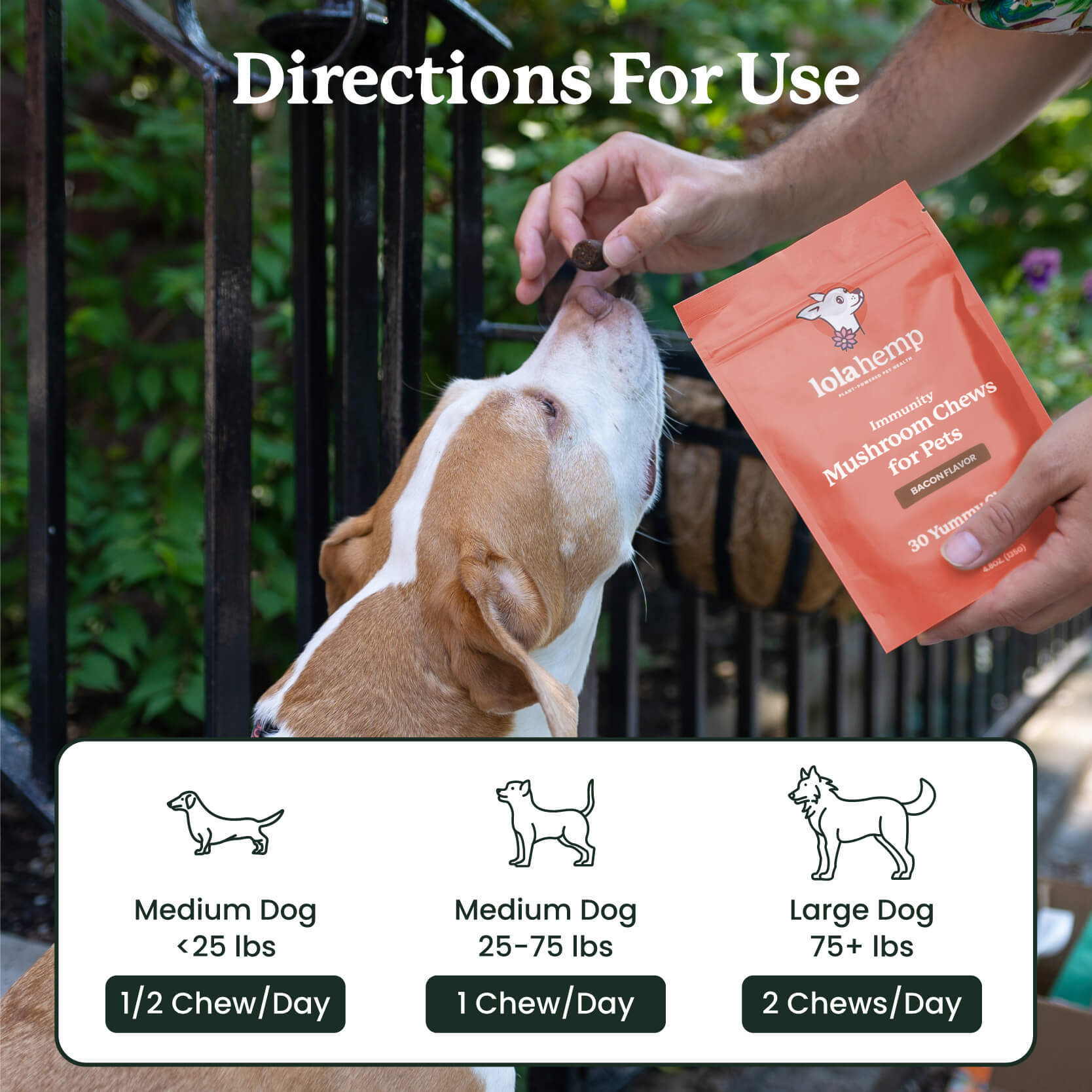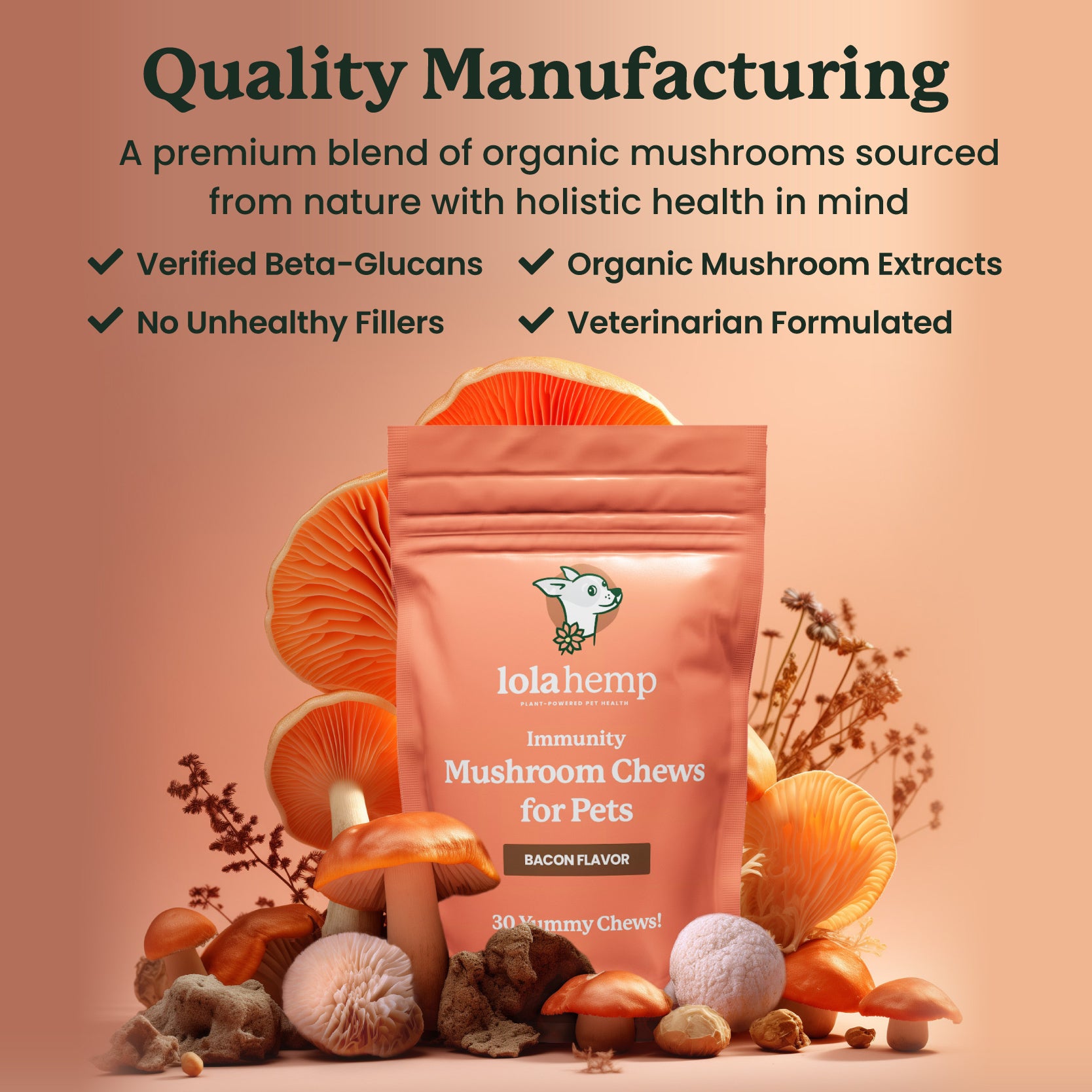Man's best friend deserves the best care, and one often-overlooked yet valuable resource in promoting canine health is colostrum, often found in dog-safe supplements. Let's learn about the benefits of colostrum for dogs and how it might benefit your canine companion.
Note that if you're looking for a great way to incorporate colostrum into your dog's diet, a functional mushroom chew with colostrum may be the best way to go.
What is Colostrum?
Derived from the first milk produced shortly after giving birth, colostrum is a nutritional powerhouse that extends its benefits beyond newborn mammals, proving to be a vital supplement for dogs of all ages.
Colostrum is a complex fluid containing a unique combination of bioactive components, including immunoglobulins, growth factors, cytokines, and various nutrients. Immunoglobulins, such as IgG, IgA, and IgM, play a crucial role in supporting the immune system, providing passive immunity to newborn animals, or, in the case of dogs, boosting the overall immune response.
Benefits of Colostrum for Dogs
| 7 Key Benefits |
|---|
Immune System SupportOne of the primary benefits of bovine colostrum is its ability to support your dog’s immune system. The immunoglobulins found in colostrum help boost immunity, assisting both puppies and adult dogs in warding off bacterial infections. This is particularly crucial for puppies as their immune systems are still developing. |
Support for The Inflammatory ResponseBovine colostrum contains bioactive compounds with anti-inflammatory properties that support the inflammatory response. This makes it a valuable supplement for dogs suffering from inflammatory conditions, helping them manage symptoms more effectively. |
Gastrointestinal SupportColostrum positively impacts the digestive tract, supporting the integrity of the intestinal lining. It helps dogs with leaky gut syndrome, balances good and bad bacteria, and improves fecal quality. This makes it especially beneficial for dogs with gastrointestinal sensitivities or disorders. |
Wound SupportThe growth factors in bovine colostrum, including IGF-1, may accelerate wound healing and tissue repair. This is especially helpful for dogs recovering from surgery, injury, or medical conditions, supporting faster recovery and overall healing. |
Nutritional SupportBovine colostrum is rich in essential vitamins, minerals, and proteins that support growth and development in puppies. For older dogs, it serves as a nutritional supplement, filling any potential gaps in their diet and enhancing their overall health. |
Seasonal AllergiesDue to its immune-boosting properties, bovine colostrum may be beneficial for dogs suffering from seasonal allergies. It could help alleviate itching, redness, and inflammation associated with allergic reactions, providing relief to your pet. |
Senior Dog SupportAs dogs age, their immune system may weaken. Bovine colostrum can enhance immune factors, support joint health, and improve the overall health of senior dogs, helping them maintain vitality and well-being as they grow older. |

When to Discuss Bovine Colostrum for Dogs with Your Vet
It may be a good idea to discuss colostrum with your veterinarian if your dog is struggling with the following issues:
- Infections
- Parvovirus
- Distemper
- Canine Herpesvirus
- Periodontal Disease
- Physiological Functions
- Autoimmune Diseases
- Arthritis and Joint Health
- Leaky Gut Syndrome
When using bovine colostrum for dogs, it's crucial to follow the recommended dosage guidelines provided by the product manufacturer or your veterinarian. Below are some factors you should consider.
Consultation with Your Veterinarian
Before introducing any new supplement, including bovine colostrum, it's essential to consult with your veterinarian. They will assess your dog's health, discuss specific needs, and provide guidance on dosage based on individual circumstances.

What to Consider When Choosing a Colostrum Supplement
Below are key considerations to keep in mind when choosing a colostrum powder:
-
Source of Colostrum: Choose colostrum powder derived from a reliable and reputable source. Ideally, it should come from pasture-fed, healthy cows free from antibiotics and synthetic hormones. You may also find hemp colostrum for dogs (or hemp milk) options on the market, which should be evaluated by your veterinarian.
-
Purity and Quality: Look for colostrum powder that is minimally processed to retain its natural bioactive properties. High-quality colostrum should be free from additives, preservatives, and fillers. Third-party testing for purity can provide assurance of the product's quality.
-
IgG Content: Immunoglobulin G (IgG) is a crucial component of colostrum responsible for providing immunity. Ensure that the colostrum powder you choose has a high IgG content, as this indicates its potency in supporting the immune system.

Conclusion
Colostrum is a nutritional powerhouse that could provide your dog with a host of benefits to their immunity and overall well-being. Be sure to discuss colostrum with your veterinarian, and opt for supplements made specifically for dogs when finding the right colostrum product for your dog.
Frequently Asked Questions about Colostrum for Dogs
What is colostrum and why is it beneficial for dogs?
Colostrum is the first milk produced after birth and contains bioactive components like immunoglobulins and growth factors that support immunity and overall health in dogs.
How does colostrum support a dog’s immune system?
Immunoglobulins such as IgG, IgA, and IgM found in colostrum help boost your dog's immune response and support natural defenses.
Can colostrum help dogs with digestive issues?
Colostrum supports the intestinal lining, balances gut bacteria, and may help dogs with leaky gut syndrome or digestive sensitivities.
Is colostrum safe for senior dogs?
Yes. Colostrum may enhance immune factors, support joint health, and improve overall vitality in senior dogs.
When should I talk to my vet about using colostrum?
You should discuss colostrum with your veterinarian if your dog struggles with infections, autoimmune diseases, joint issues, or gastrointestinal problems.

